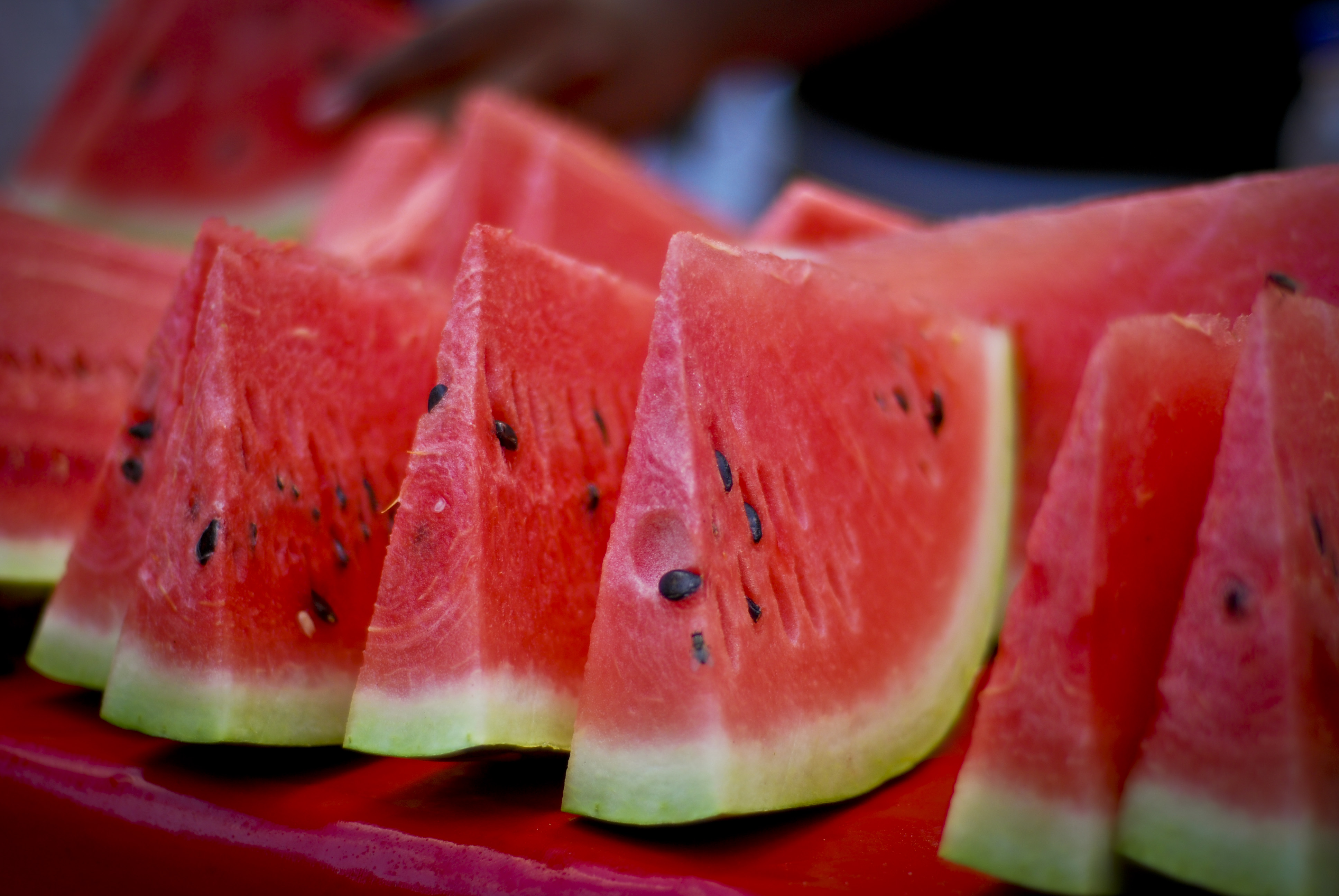 |
| Nutrition Thursdays: Is Watermelon The New Beet Juice?** image courtesy of flickr |
Over the summer I noticed that there has been an influx of watermelon juice products. I thought this was just some new thing kind of fad, so I looked into it and found something interesting. In an article from Runner's World.com titled "Watermelon Juice: The New Beet Juice? New Evidence Suggests The Citrulline Found In Watermelons May Boost Exercise Performance" by Alex Hutchinson, and here is a brief synopsis of what it says:
Mr. Hutchinson says this:
"I have a high level of skepticism about performance-enhancing supplements. Given the endless succession of supplements being tested, chance dictates that there will be a stream of seemingly positive studies. Few of these studies turn out to be reliably repeatable, so I generally ignore them.
"The new study, which appeared a few months ago in the Journal of Applied Physiology, compares two supplements with the potential to have similar effects to beet juice. The active ingredient in beet juice is nitrate, which is converted within the body to nitrite and then to nitric oxide, which is what seems to provide the performance boost. But the body has other ways of producing nitric oxide, including making it from an amino acid called arginine."
"In the new study, the researchers compared arginine to a placebo and to another amino acid, citrulline. Citrulline is actually one of the byproducts produced when arginine is coverted to nitric oxide, but it's then recycled back into arginine to produce more nitric oxide. The advantage of citrulline is that it can make it through the intestine and past the liver unscathed, unlike arginine—so it may represent a better way of boosting nitric oxide levels in the body."
"The study involved 10 volunteers who took the supplements for seven days at a time, and did exercise tests on the sixth and seventh days. Each subject tried all three supplements at different times. The results were somewhat mixed, but the overall conclusion was that citrulline, but not arginine, improved blood pressure (just like beet juice) and boosted performance in "severe intensity" exercise tests lasting around 10 minutes or less."
** If you would like to read more of the article, please visit Runner'sWorld.com.
Tune in next Thursday for more nutritional tips and maybe even a recipe on Nutrition Thursdays!
Also, check in tomorrow to see my fourth installment of Progress Fridays!
No comments:
Post a Comment
Questions or comments? Let's start a discussion on this topic!